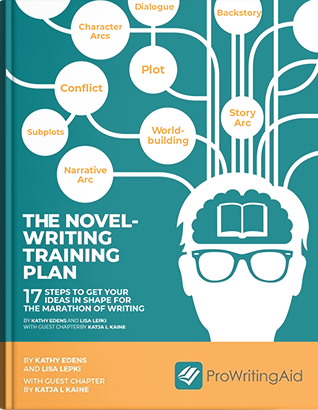
Defining success as a writer is a very personal thing. Some writers want to earn a full-time living writing books and others just want to fulfill their personal goal of having a book published.
How you define success as a writer should be based on the goals you set for yourself. There are so many opportunities in the writing industry that comparing yourself to other writers is a waste of your time – time that is better spent writing.
If you don't set goals for yourself, how can you define success for yourself as a writer? Your goals don't have to be complicated. Even something as simple as writing for ten minutes a day is a great goal. If you've never thought about your writing goals, now’s the perfect time to start.
Just like there are many types of goals, there are also many types of writers. This article focuses on writers who write books. Here are a few ideas to get you started based on the three writer goals I see most often.
1. Monetary Goals
Many writers dream of hitting a monetary goal, whether that’s making a few hundred dollars a month or supporting themselves with their writing. There are distinct monetary goals with the specifics of each goal varying.
Supporting Yourself as a Writer
Supporting yourself as a writer is one of the monetary goals that has great variance. How much you need to support yourself will depend on the expenses you have every month and how many people are in your household.
Some writers consider themselves a full-time writer when their income from writing matches what they were earning in a previous full-time job. If supporting yourself as a writer is a goal that interests you, you will want to figure out what that means. Start by adding up your monthly expenses and considering how much money you'd like to save every month.
Reaching a Certain Income Level
Other writers want to earn a certain monthly or annual income amount, such as $3,000 per month or $50,000 per year. Once they reach that level, they choose a new income level to aim for.
Making ‘X’ Dollars During Your Entire Writing Career
A third monetary goal for writers is earning a certain amount from sales over their entire career. For example, they might want to earn a million dollars from all their book sales combined regardless if that takes 15 years or 50 years.
2. Achievement-Based Goals
Achievement-based goals consist of earning certain accolades with your writing. Some are prestigious and can help you sell more books once you accomplish them.
Hitting a Bestseller List
There are many bestseller lists your book can end up on. In the United States, The New York Times, The Washington Post, Publishers Weekly, and USA Today all publish bestseller lists. Every country has their own bestseller lists, and depending on where you live, one of your goals may be to get your book on one of those lists.
Hitting one of these bestseller lists tells the world that your book is worth reading. Once you hit one of these lists, you can then use that in your marketing. You've probably noticed this when shopping for books yourself. Authors who have hit a bestseller list often list this at the top of their book blurb.
Selling Copies of Your Book
Another achievement-based goal is selling a certain number of copies of your book. I often hear authors mention this in their introductions when they give presentations. They may say they’ve sold a million copies of their book or that their book has been translated into five languages. These are great goals to aim for.
Selling 1,000 copies of your book is also a great goal. Once you've reached that level, set a new goal, say 10,000 copies. The key to setting your author goals is picking the ones that make the most sense for you.
Winning a Contest
Depending on the contest, this goal could fit under both the financial and achievement headings. If winning a contest is a goal of yours, whether for the financial prize or the accolades, choose carefully. Think about whether the contest will help you reach your goal. Is the prize money substantial compared to the entry fee? Is the contest recognized enough you could use the win to advance your career?

3. Gratification-Based Goals
At first glance, gratification goals may seem like achievement-based goals, but they are slightly different. To me, achievement-based goals feel more status oriented whereas gratification goals are personal.
Networking and Expanding Your Writer Community
Life can be lonely sometimes, especially as a writer. Writing is a way we can come together as a community by sharing this skill we have in common. Attending writers groups or conferences is a way to meet new friends and share the love of writing.
Writing for Enjoyment
There's nothing that says you have to monetize your writing. Many writers write because they enjoy it so much. They gain a sense of accomplishment by seeing their words on the page.
Publishing Books
For other writers, it's important that other people see their words. Maybe you just want to get your book published, because you're tired of saying you will publish a book one day. That's fine. If your goal is to see your name on the cover of a book, then you need to keep writing.
Takeaways
Just like there are many types of writers, there are many types of writing goals. How you define your success as a writer should be related to the goals you choose for yourself. Writing is not a competition, although it can be if winning a writing contest or hitting a bestseller list is one of your goals. There are many other ways to define success as a writer.
You may have multiple goals as a writer, and that’s fine. Good for you! I have writing goals that fall into more than one category. Thinking about the goals that suit you best for your writing can give you a better idea of what you want to accomplish in your writing career, so you can take steps to achieve those goals.


